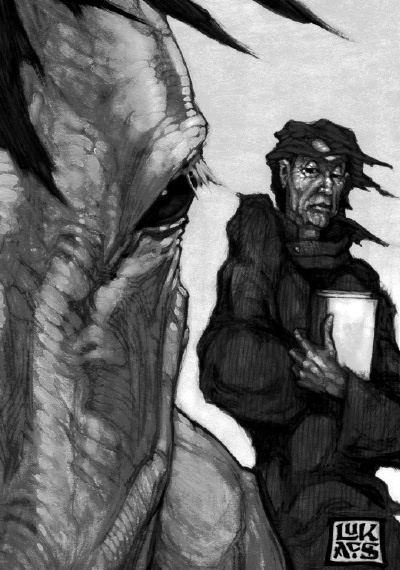
 The Easter Bunny is a savage and unforgiving beast. This I always knew. I watched in dismay last week as he refused my daughter’s reasonable request for somehing practical and useful: the unyielding edict of the Bunny is that he brings only what is useless and frivolous. And chocolate, sometimes.
The Easter Bunny is a savage and unforgiving beast. This I always knew. I watched in dismay last week as he refused my daughter’s reasonable request for somehing practical and useful: the unyielding edict of the Bunny is that he brings only what is useless and frivolous. And chocolate, sometimes.
I thought I got off easy this year, as the Bunny brought me something I’d often thought about getting myself: the complete Spider-Man (complete at least through 2005). I haven’t been reading a lot of comics lately, but the Sam Raimi movies reminded me of how much I liked Spider-Man as a kid, and I’d often thought about having another look at them to see if they stood up to rereading.
The answer, of course, is that they do and they don’t. Some of the early stories creak audibly, even in PDF form, and there are definitely pacing problems. Page after page of costumed characters going THWAK! Ver-PLOCKKXKK! GLRRRT! at each other doesn’t really constitute storytelling, and as I boredly tapped on the “forward” button I felt some déjà vu from my school-age self, thinking these same thoughts forty-some years ago.
On the other hand, I thought then and think now that it’s pretty amusing when Spider-Man psychoanalyzes his opponents in-between punches. (“Why is it that everyone I fight is overflowing with neurotic hostility?”) And I like it that he has to use his brains to get out of most serious problems–it’s not all thwackery amd bonkery. And it’s just part of the Spider-Man set-up that he has this screwed-up personal life full of problems that superpowers can’t solve.
So: good and bad. But the worst shock that awaited me had nothing to do with the suspenseful plotting of (“Smilin'”) Stan Lee or Johnny (“Ring-a-Ding”) Romita. The horrifying details (with a possible Blood of Ambrose spoiler) beyond the jump.
…
Read More Read More





 X-Men Origins: Wolverine is zapped into obscurity by the twin phaser-blasts of Trekstalgia and JJAbramitude, I would like to point out that the movie doesn’t actually suck.
X-Men Origins: Wolverine is zapped into obscurity by the twin phaser-blasts of Trekstalgia and JJAbramitude, I would like to point out that the movie doesn’t actually suck.
 Everyone who loves imaginative fiction should raise their voice, frequently, in praise of
Everyone who loves imaginative fiction should raise their voice, frequently, in praise of 
 The Easter Bunny is a savage and unforgiving beast. This I always knew. I watched in dismay last week as he refused my daughter’s reasonable request for somehing practical and useful: the unyielding edict of the Bunny is that he brings only what is useless and frivolous. And chocolate, sometimes.
The Easter Bunny is a savage and unforgiving beast. This I always knew. I watched in dismay last week as he refused my daughter’s reasonable request for somehing practical and useful: the unyielding edict of the Bunny is that he brings only what is useless and frivolous. And chocolate, sometimes.

